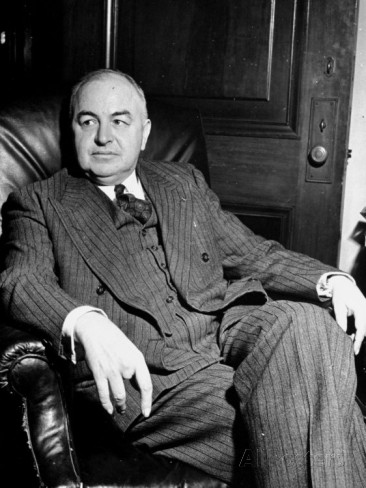Get Today in Masonic History into your Inbox. Sign up today for one of our email lists!
Need an article for your Trestleboard/Newsletter see our Use Policy
Harley Martin Kilgore is Born

Today in Masonic History Harley Martin Kilgore is born in 1893.
Harley Martin Kilgore was an American politician.
Kilgore was born on January 11th, 1893 in Brown, West Virginia. He attended local public schools before attending West Virginia University where he graduated in 1914. He passed the bar the same year. After graduation he taught school and in 1915 established the first High School in Raleigh County, West Virginia where he was the first principal for a year. In 1916 he opened a private law practice.
In 1917, Kilgore enlisted in the United States Army during World War I. He served until 1920 when he was honorably discharged as a captain. In 1921, after returning from the war, he organized the West Virginia National Guard. He served in the National Guard until 1953 when he retired as a colonel.
From 1933 to 1940, Kilgore served as a judge on Raleigh County criminal court. In 1940 he was elected to the United States Senate. He was reelected twice to the Senate serving through World War II and into the 1950's. In 1941 he was put on the Truman Committee, organized by Senator and future President Harry S. Truman. The committee's purpose was to fix war time production problems and investigate war profiteering. In 1942 he chaired the subcommittee on War Mobilization of the Military Affairs Committee which was commonly referred to as the Kilgore Committee.
It was also in 1942, Kilgore was approached by Herbert Schimmel, an American manufacturing expert who asked Kilgore to form a committee to centralize research done on the war effort. The idea was all information and patents were shared to help the war effort. Vannevar Bush who headed the United States Office of Scientific Research and Development (OSRD) was in favor of the spirit of the plan put forth by Kilgore, although he was opposed to the idea of government administration of science funding and patent sharing. As the war ended, Kilgore pushed forward with his plan, thinking he had Bush's support for the organization which was now called the National Science Foundation. Calling it a Foundation was meant to alleviate fears in the scientific community the government was going to be running research. Kilgore felt calling it a Foundation made it sound more like a non-profit organization. When Kilgore introduced his bill, a competing bill which was created by Bush and sponsored by a Senator from Washington named Magunson. Kilgore felt betrayed by Bush and held a grudge against him for many years.
Kilgore and Magunson negotiated with each other and eventually put together a modified bill. Alexander Smith of New Jersey, resurrected the Bush bill and was able to get it passed in the House and Senate. By this time, Truman was President and Kilgore convinced Truman to use a pocket veto, a method where no action is taken and the bill eventually expires, to get rid of the bill. Kilgore convinced Truman by warning Bush's original plan allowed the military to dominate scientific research. Kilgore also convinced Truman to create the Presidential Research Board which was led by John Steelman.
In 1948, a compromise was reached and Kilgore and Smith co-sponsored a bill which Truman signed in 1950 creating the National Science Foundation.
Kilgore passed away while still serving in the Senate on February 28th, 1956.
Kilgore was a member of Beckley Lodge No. 95 in Beckley, West Virginia.
This article provided by Brother Eric C. Steele.

